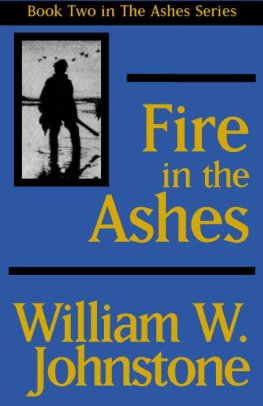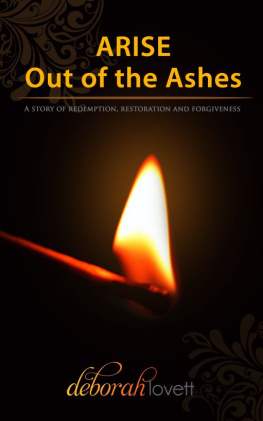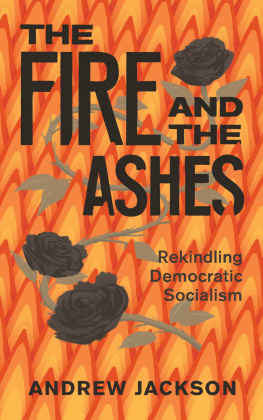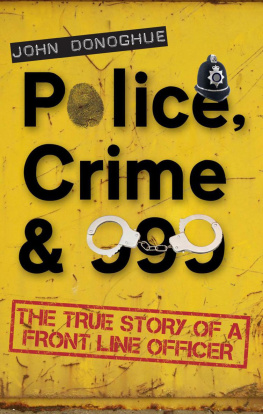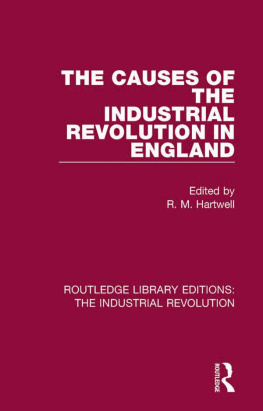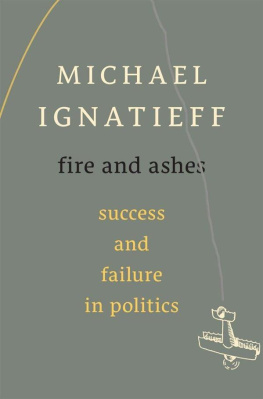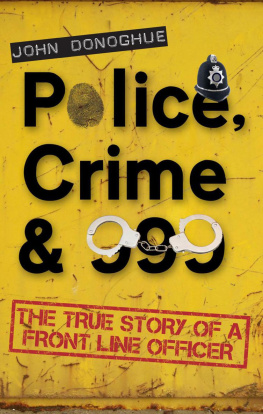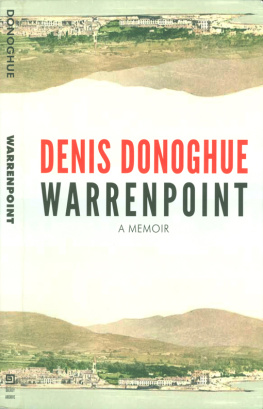JOHN DONOGHUE is associate professor at Loyola University Chicago specializing in the history of the early modern Atlantic world. He lives with his family in Pittsburgh.
The University of Chicago Press, Chicago 60637
The University of Chicago Press, Ltd., London
2013 by The University of Chicago
All rights reserved. Published 2013.
Printed in the United States of America
22 21 20 19 18 17 16 15 14 13 1 2 3 4 5
ISBN-13: 978-0-226-15765-8 (cloth)
ISBN-13: 978-0-226-07286-9 (e-book)
DOI: 10.7208/chicago/9780226072869.001.0001 (e-book)
Library of Congress Cataloging-in-Publication Data
Donoghue, John (Historian)
Fire under the ashes : an Atlantic history of the English revolution / John Donoghue.
pages. cm.
Includes bibliographical references and index.
ISBN 978-0-226-15765-8 (cloth: alk. paper)ISBN 978-0-226-07286-9 (e-book)
1. Great BritainHistoryCivil War, 16421649. 2. Great BritainHistoryCommonwealth and Protectorate, 16491660. 3. Great BritainColoniesAmerica. 4. SlaveryAmerica. I. Title.
DA415.D656 2013
942.062dc23
2013009940

This paper meets the requirements of ANSI/NISO Z39.48-1992 (Permanence of Paper).
Acknowledgments
THERE are many pleasures involved in writing a book. One of the greatest is thanking the people and institutions that make them possible.
Generous research funds were provided by the American Historical Association; the Boston Athenaeum; the International Seminar on the History of the Atlantic World (Harvard University); the Forum for European Expansion and Global Interaction; the College of Arts and Sciences, the Graduate School, and the Joan and Bill Hank Center for the Catholic Intellectual Heritage of Loyola University Chicago; and the Department of History and Center for West European Studies of the University of Pittsburgh.
Research for the book was conducted in several European and American archives. I am grateful to the staffs of the libraries listed here for their expert help and assistance: the Bodleian Library (University of Oxford); the Boston Athenaeum; the British Library (London); the British Museum (London); the British National Archives (Kew Gardens); the Cudahy Library (Loyola University Chicago); Dr. Williams Library (London); Hillman Library (University of Pittsburgh); the Houghton Library (Harvard University); the Folger Library (Washington, DC); the Huntington Library (San Marino, CA); the International Institute for Social History (Amsterdam); the John Carter Brown Library (Brown University); the Kings Inns Library (Dublin); the Library of Congress (Washington, DC); the London Metropolitan Archives; the Massachusetts Historical Society (Boston); the Neville Public Museum (Milwaukee); the National Library of Ireland (Dublin); the Newberry Library (Chicago); the Newport (RI) Historical Society; the Long Room Library (Trinity College Dublin); the Rhode Island Historical Society (Providence); and the Rhode Island State Archives (Providence). A short-term fellowship from the Long Room Hub, Trinity College Dublin, gave me the opportunity to spend more time researching the English Republics conquest of Ireland. I am grateful for this opportunity and for the many kindnesses that Jason McElligott, Jane Ohlmeyer, Michel Siochr, and Graeme Murdock showed to me during those happy days in Dublin.
Special thanks also go to David Armitage, Bernard Bailyn, Simon Middleton, and Billy G. Smith, who in different venues and at different stages of my research encouraged me to continue developing the themes that eventually came to mark this book. Along with a legion of other Atlanticists, I owe a particularly deep debt to Bernard Bailyn, whose International Seminar on the History of the Atlantic World at Harvard University has launched so many excellent scholarly projects. For decades, Professor Bailyn has labored tirelessly, selflessly, and successfully, especially through his work with rising scholars, to establish Atlantic history as a rich and vibrant field of study.
Many colleagues, friends, students, and mentors assisted and encouraged me throughout the writing of the book with their time, insight, support, and not a few very excellent meals: Aaron Brunmeier, Dina Berger, Robert Bucholz, Corey Capers, Denver Brunsman, Bernard Capp, Anthony Cardoza, Charlotte Carrington, David Dennis, Todd Depastino, Anthony DiLorenzo, Seymour Drescher, Mari Dumbaugh, Erin Feichtinger, William Fusfield, Alison Games, Michael Goode, Elliott Gorn, Janelle Greenberg, Drew Haberberger, Christopher S. Hayward, Esq., Evelyn Jennings, Nathan Jeremie-Brink, Suzanne Kaufman, Anthony Kieran, Michael Khodarkovsky, Peter Kotowski, Peter Linebaugh, John McAdoo, Fr. Matthew McClain, Fr. John McManamon, SJ, Ted Mette, Michelle Nickerson, John Powell, the students of Hist 300: Slavery and AbolitionThen and Now (spring 2009), Elodie Peyrol, John Pincince, Barbara Rosenwein, Kim Searcy, Peter Thompson, Laurel Trojan, Prof. David Twining and the Westminster College (PA) History Honors Society, Peter Way, and Betty Wood. Simon Middleton has repeatedly gone above and beyond the call of duty to help in this undertaking and deserves special notice here. Like Simon, my fellow Harvard Atlantic Seminarian Denver Brunsman has been an unfailing source of insight and inspiration for many years. Jonathan Scott, who served on my dissertation committee, has had a powerful influence on my work; he also became a good friend, patient teacher, and benevolent taskmaster while we were both at the University of Pittsburgh. A special note of thanks goes to my all-star editor Robert Devens of the University of Chicago Press, whose wit and conversation are as sharp as his editorial eye. Although Robert left the Press in the final publication stages of the book, his work and that of his former colleagues at Chicago, Russ Damian and Ruth Goring, have made it much better than it would have been otherwise. I apologize in advance to all those I have inadvertently failed to acknowledge here. You know who you arethank you.
I am very lucky to work at Loyola University Chicago, which through its Jesuit mission strives to make the pursuit of social justice an integral part of higher education. I am grateful for the help and friendship of my colleagues in the history department and elsewhere in the university, whose collegiality, good humor, and dedication to teaching, service, and scholarship have been a true inspiration. I thank them all collectively here, with special mention to Timothy Gilfoyle, a brilliant historian and dear friend whose devotion to his family, colleagues, and profession, as well as his warm Irish hospitality, is impossible to match but easy to admire.
Sadly, another Chicago-based scholar, the great historian of the American Revolution Alfred F. Young, passed on as I readied Fire under the Ashes for publication. Al took a special interest in my work and spent a lot of time improving it. Perhaps the best tribute that I can pay to Al is to say that if he had not rediscovered George Robert Twelves Hewes, I would never have found Samuel How.
The scholar to whom I owe the most is my friend and fellow creature Marcus Rediker at the University of Pittsburgh. The deep humanity that pervades his work has served as a constant source of inspiration for me as a teacher, as a scholar, and as a citizen of the world. Ive learned from Marcus that the archives are full of freedom stories, and that they can serve as the highest form of intellectual history.

 This paper meets the requirements of ANSI/NISO Z39.48-1992 (Permanence of Paper).
This paper meets the requirements of ANSI/NISO Z39.48-1992 (Permanence of Paper).
